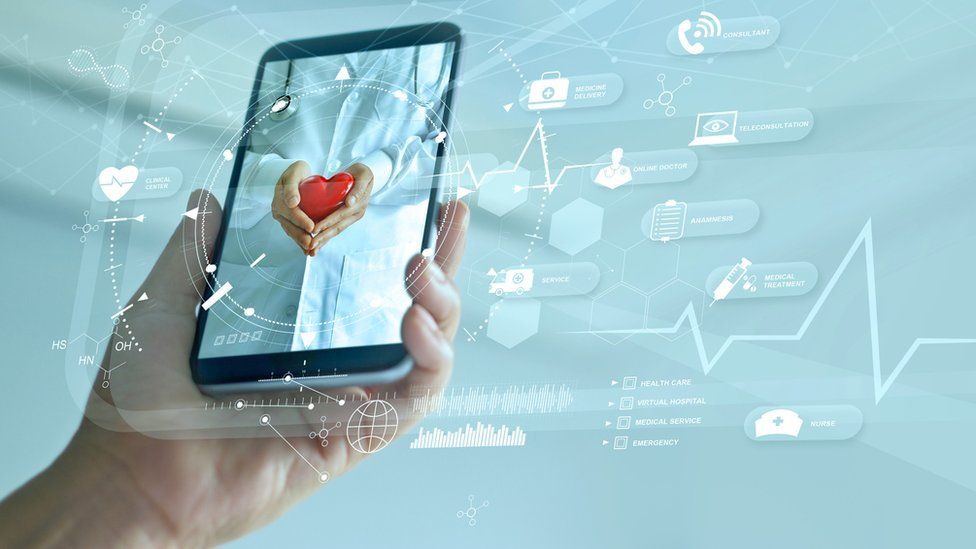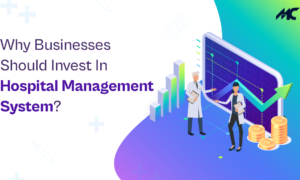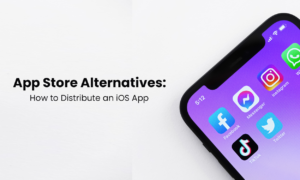The creation of healthcare mobile apps is a challenging profession that demands extreme focus and attention to detail. A mistake in such an application might cost you money, your health, or even your life. Therefore, you must take into account a number of details before beginning the medical app development of such a project and never provide a quicker, “raw” result. As a result, we will attempt to inform you of the key elements and characteristics of the creation of healthcare mobile apps.
The field of mobile health is expanding quickly these days. The rising incidence of chronic conditions including diabetes, cardiovascular disease, and obesity as well as the spread of digital health technology are what are driving the demand for mHealth apps.
Covid 19 made a significant contribution to the growth of mobile healthcare apps. To monitor health indicators, however, the app was frequently used by roughly 64% of adult U.S. citizens in 2017. However, there are certain concerns regarding the security of data systems and the confidentiality of personal information. However, this does not preclude the possibility of such a suspicious audience becoming a target; this will present another cybersecurity risk for those who develop healthcare apps.
Despite recent improvements, the market for healthcare apps is still far from being saturated. The majority of the list’s apps up until a few years ago were health and leisure apps. It is now beginning to contain an increasing number of apps targeted at particular tasks. For instance, operating a supplemental medical app clinic or assisting those who are afflicted with particular disorders. Analysts have outlined a number of key application categories in the mobile health market for diagnostics, monitoring, prevention, therapy, and medical simulations.
A Medical App: What is it?
What types of applications can be classified as medical or those that are somehow connected to your health?
First of all, there are programmes that assist users in efficiently managing their physical and psychological ailments, their level of fitness, and their hospital visits and insurance payments.
Similarly, while using mHealth apps, doctors have their own objectives. The instruments that doctors most frequently use are listed by the Healthcare Information and Management Systems Society:
- Aassemble bedside data
- Track information from distant devices
- Data transmission and care coordination
- Make telemedicine appointments
- Interact with patients
- Data integration into EMR
What Distinguishes a Health App from a Medical App?
In contrast to medical apps, which are software on mobile devices that users can apply to regulated medical devices, health apps are created to provide health-related services for all sorts of smartphones and communication devices.
mHealth App Categories for Patients:
- Apps for wellness and exercise
- Apps for mental health (including meditation)
- Self-diagnosing\sIoT
- Applications for providing care for the aged and ill
- Vital sign monitoring and patient well-being diaries (blood pressure, pulse, glucose, and cholesterol levels…)
- Apps for managing your health, including those that track your water, provide diet advice, and calculate calories.
- Social networking, forums, and portals related to health
- Assistance for expectant mothers
- Female health
- Telemedicine/on-demand medical care
- Reminders for appointments and recipes
- Mood trackers, medication management, and sleep monitoring
To doctors:
- Applications for medical education and resources that provide details on medications, medical publications, or symptom lists
- Distant diagnostics
- Remote observation
- Management of appointments and communication
- Telemedicine
There is a third cluster but only these two groupings are included in the classification. These are medical applications for organisations with ties to the healthcare sector.
- Apps for clinical support with EMR and EHR access
- Appointment-making and planning
- Inventory management and billing
For more about healthcare app development company visit us now.















































